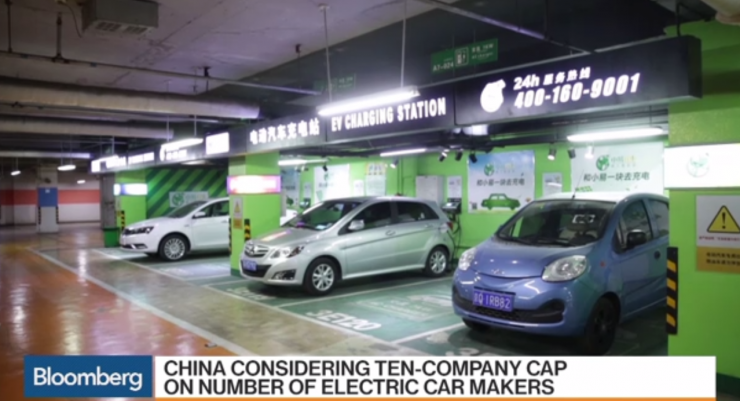Recently, Bloomberg wrote: 95% of China's Electric Vehicle Startups Face Wipe out said that 95% of electric vehicle startups will be eliminated in the future. China now has more than 200 electric vehicle start-up companies. The future Chinese government will promote the elimination of some companies without manufacturing experience by raising technical standards, and consider reducing the number of electric vehicle manufacturers to 10. At present, investors have invested at least 2 billion U.S. dollars in the field of new energy vehicles. The government's policy of subsidizing new energy vehicles has triggered a "gold rush" and brought about some hidden dangers: too much lack of manufacturing electric vehicles or hybrid power. Companies related to automotive technology have flooded the market. These new energy car companies are likely to face the same problems as the global automotive industry: overcapacity and high inventory. With the popularization of low-priced models, as well as the increase in costs caused by the increase in energy efficiency and emission standards, global automakers are facing downward pressure on profit margins. Last year, China surpassed the United States as the world's largest market for new energy vehicles (including electric, hybrid, and fuel cell vehicles). According to data from the China Association of Automobile Manufacturers, in 2015, Chinese domestic auto manufacturers sold a total of 331,092 new energy vehicles. Sales of new energy vehicles will triple by 2020 The government's goal is that by 2025, the sales of new energy vehicles will reach 3 million, nearly a 10-fold increase. At the same time, the government will subsidize 60% of the price of the signage. It is reported that China currently has about 4,000 new energy vehicles under development. The Ministry of Industry and Information Technology of China is considering to control the number of new energy automobile manufacturers within 10. Of course, this figure does not include traditional automobile manufacturers such as SAIC Group and BYD. At present, the Ministry of Industry and Information Technology has not responded to this. Due to the stricter quality control measures introduced by the government, some start-ups are still far away from starting production lines even if they have obtained production licenses. In a draft of the new energy vehicle management measures announced earlier this month, the Ministry of Industry and Information Technology listed 17 technologies that new energy automobile manufacturers must have to ensure the healthy development of the industry. These technologies include control systems that can monitor the performance and stability of new energy vehicles, information systems that track the source and quality of major components, and technologies for the recycling or reuse of used batteries. According to media reports, 90% of companies currently developing new energy vehicles still cannot meet these technical standards within two years. Beiqi New Energy is one of the first two approved companies. The company is part of the Beijing Automotive Group and will build a factory in Beijing. It plans to produce 70,000 new energy vehicles each year. Another approved company is Hangzhou Changjiang Bus Company. Its largest shareholder is the Wulong Electric Vehicle Group listed in Hong Kong. The Yangtze River Passenger Bus Co., Ltd., which mainly manufactures buses, once collapsed and was later invested by the Wulong Electric Vehicle Group, making the company back to life. Wulong Electric Vehicle Group has obtained investment from Li Ka-shing. According to the documents approved by the National Development and Reform Commission of China, only Beiqi New Energy and Yangtze River Passenger Cars have so far been approved to produce electric vehicle qualifications, and another three companies are currently applying. Currently, companies that are waiting for production licenses include: Wanxiang Group. The company has developed a solar hybrid car that will cost more than $115,000. The company plans to invest 375 million U.S. dollars in construction in Hangzhou. LeTV. The company announced on the 10th this month that it will invest RMB 6 billion to build factories and produce 200,000 new energy vehicles each year. Weimar Automobile. The company announced on the 17th of this month that it has raised US$1 billion and plans to launch its first model in 2018. Weima Motors was founded by former senior executive Shen Hui of Zhejiang Geely Holding Group. ... and more electric car startups. Car analyst Zhang Zhiyong said: “The speed of government approval is worrying. Many companies are starting to build production lines, but they cannot get production permits in time. This is a big problem.†Original link: 95% of China's Electric Vehicle Startups Face Wipeout Please pay attention to the new intellectual driving. Wechat adds "New Driving" to subscribe to the public number. OLED Module,OLED Screen,OLED Display Module,0.96 OLED Display,1.3 Inch OLED Display ESEN Optoelectronics Technology Co., Ltd, , https://www.esenlcd.com

